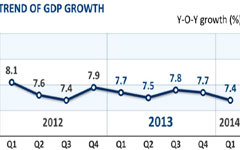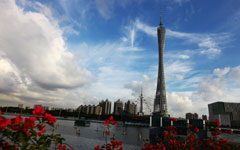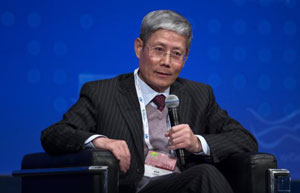China working more closely with foreign think tanks
By He Dan (China Daily) Updated: 2014-04-28 07:16"Before China's reform and opening-up, most overseas observers could only rely on studying the People's Daily to understand China. Nowadays, experts in foreign think tanks have profound knowledge of China," he said.
In recent years, more and more foreign think tanks have managed to establish cooperative arrangements with the Chinese government or Chinese research institutes to participate in reform, he said.
 |
 |
Wang Huiyao, director of the Center for China and Globalization, a Beijing-based independent think tank that held a symposium on think tanks and China's development on April 17, pointed out that foreign think tanks, especially those in the US, attract top talent worldwide for their research.
"International students account for more than 10 percent of topnotch American universities' annual recruitment. A considerable number of international students who demonstrate both excellent research capacity and background knowledge of their home countries or region were enrolled by American think tanks to conduct research related to their mother countries," he said.
He cited Li Cheng as an example. Li was appointed as the new director of the John L. Thornton China Center under the Brookings Institution this March. Born in Shanghai, Li went to the US for studies in the 1980s and became a leading researcher on Chinese leadership and elite politics.
"From my personal contact with these Chinese scholars working in overseas think tanks, I learned that many of them keep their Chinese nationality or even Party membership, and they have often been invited to give lectures for senior Chinese officials and attended some important events held by the Chinese government," said Tsinghua University's Zhu.
He urged domestic think tanks to learn from their overseas counterparts to promote their research globally and provide consultancies for countries that are eager to learn from China's successful experience in development.
- Singapore retains top yuan offshore clearing center outside HK
- Overcapacity, slowdown bring steel industry losses
- S China footwear factory resumes production
- Brunei, China sign carbon steel pipe project
- Third party mobile payment thrives
- Alibaba takes youku stake
- Time to focus on growth quality, IMF says
- Cloud computing brings revenue to western region
















